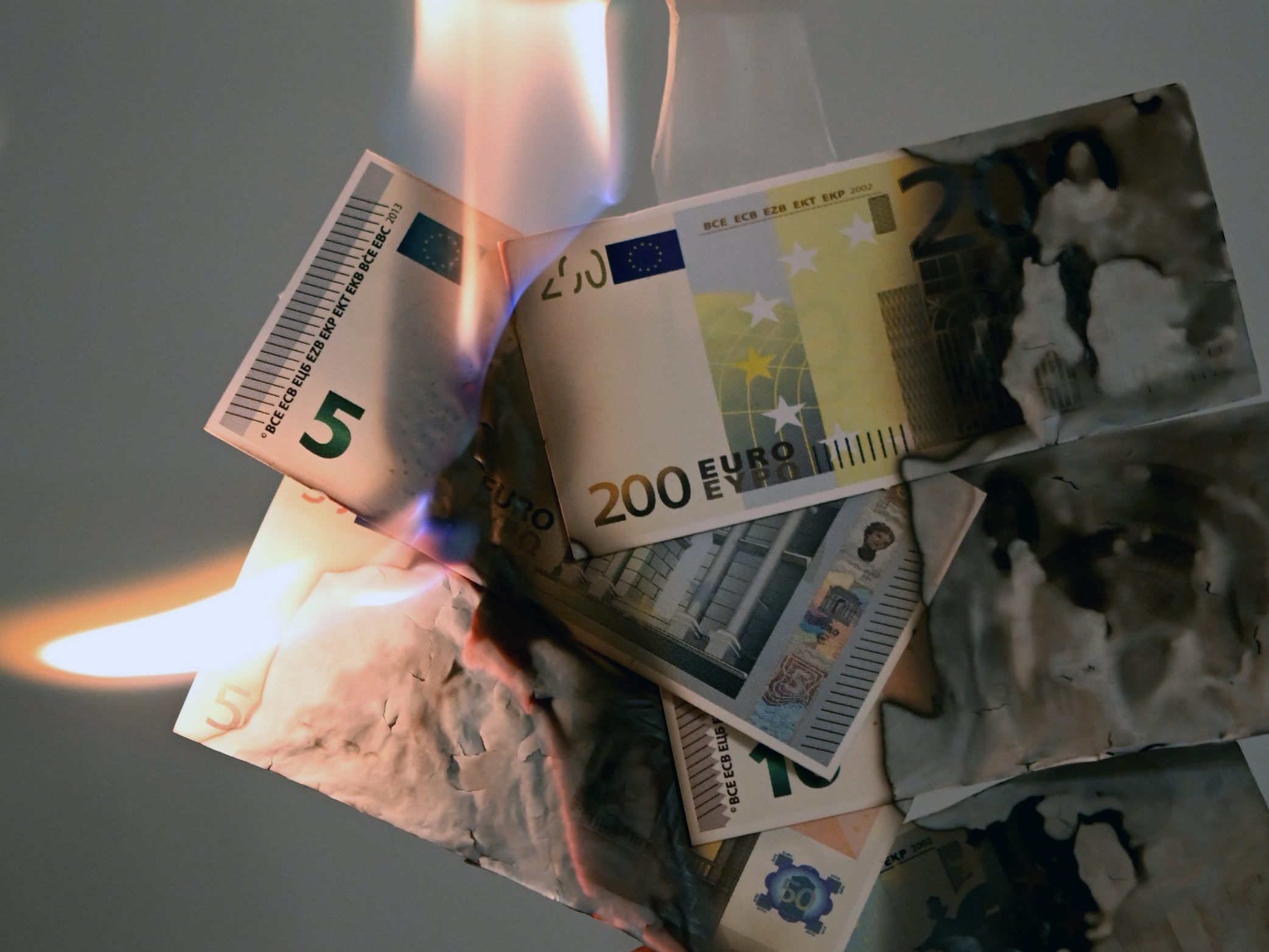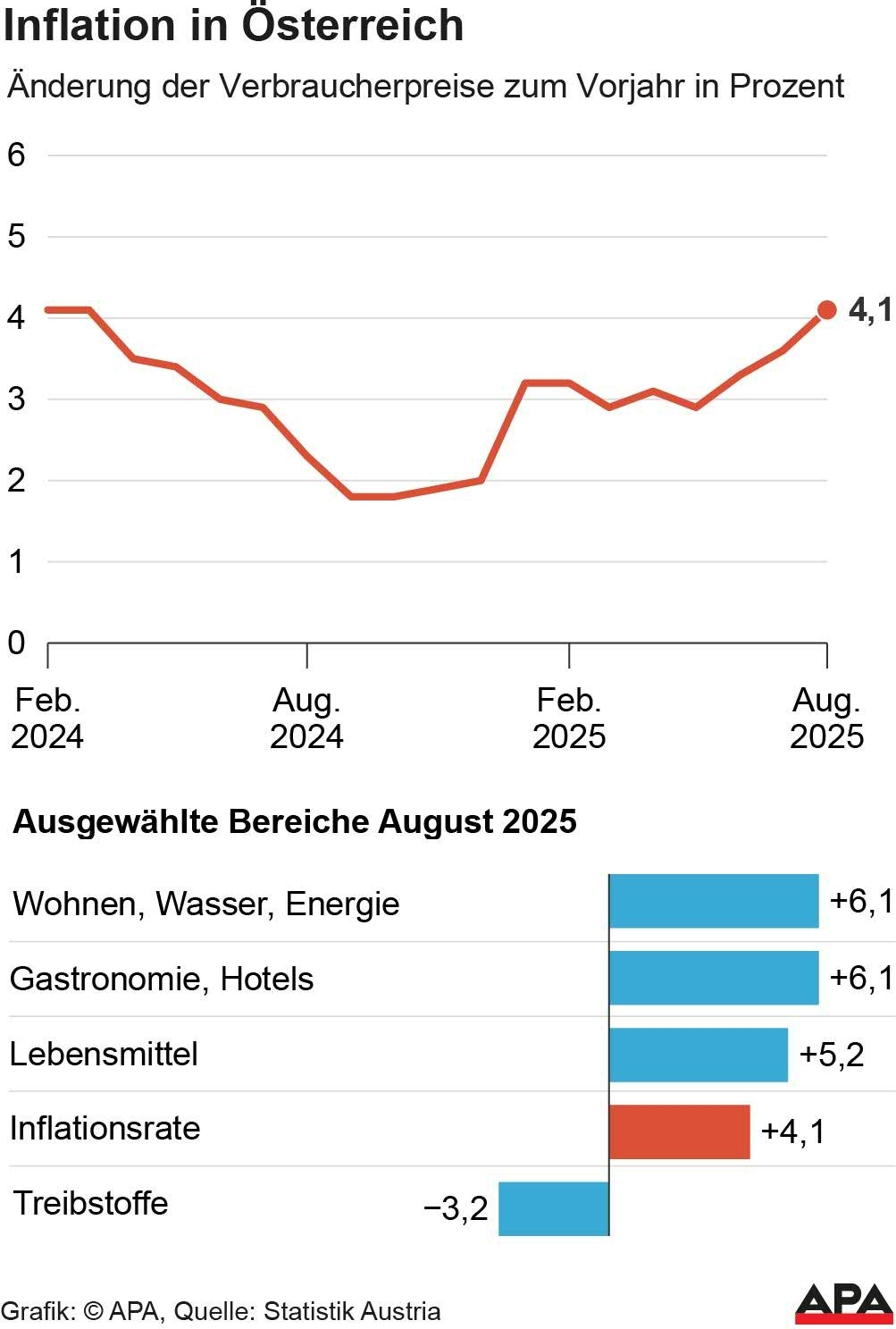4.1 Percent: Inflation in August at Annual High

According to Statistics Austria, inflation climbed to 4.1 percent in August, up from 3.6 percent in July. This means prices in Austria are rising more than twice as fast as in the Eurozone. "The inflation rate was last this high in March 2024," confirmed Statistics Austria Director General Manuela Lenk on Wednesday, confirming the figures already expected in the flash estimate.
The strongest price drivers currently are gastronomy, electricity, and food. Without these three areas, the inflation rate would have been only 2.2 percent. Compared to July, the general price level increased by 0.2 percent.
Plus 37.2 Percent in Electricity
The housing, water, and energy sector had the largest share of inflation with an increase of 6.1 percent. The main reason was electricity prices, which increased by 37.2 percent over the year - an effect also attributed to the removal of the state electricity price brake as well as higher network charges and taxes. District heating also became more expensive (+1.2 percent). In contrast, prices for heating oil (-4.1 percent), solid fuels (-3.7 percent), and gas (-2.8 percent) continued to have a dampening effect. Rents also increased more strongly than in July, with a rise of +4.4 percent.
In restaurants and hotels, prices rose by 6.1 percent, stronger than in the previous month. While catering services increased particularly sharply by +6.1 percent, the price increase for accommodations slightly weakened to 5.6 percent. Food and non-alcoholic beverages became on average 5.2 percent more expensive. Price increases were particularly noticeable for meat (+6.2 percent) as well as for milk, cheese, and eggs (+7.5 percent). Bread and cereals cost 3.1 percent more, vegetables 2.4 percent more. Coffee became even 23.8 percent more expensive year-on-year.

In the transport sector, a rise in prices was also observed: they increased on average by 1.2 percent, after only +0.3 percent in July. Used cars became 7.1 percent more expensive, flight tickets 3.6 percent more expensive. At the same time, the decline in fuel prices (-3.2 percent) had a less dampening effect than in the previous month. A plus of 4.5 percent was recorded for clothing and shoes - an effect that Statistics Austria attributes to improved recording of seasonal patterns through scanner data.
Core inflation - excluding energy and unprocessed food - was 3.8 percent in August. The EU-wide comparable harmonized consumer price index (HICP) also reached 4.1 percent, an increase of 0.3 percent compared to July.
2.0 Percent Inflation in Eurozone
In the Eurozone, inflation remains at the European Central Bank's (ECB) target of 2.0 percent, which is slightly lower than initially expected. The inflation rate in the 20 Euro countries remained at the July level in August, as reported by the statistics office Eurostat on Wednesday. At the beginning of September, an increase to 2.1 percent had been reported.
Increase in Micro and Mini Shopping Basket
In everyday life, the inflation remained noticeable: The micro shopping basket, which reflects daily shopping, rose by 4.7 percent year-on-year. The mini shopping basket for weekly shopping, however, only increased by 3.4 percent.
The union-affiliated Momentum Institute believes that inflation could be reduced to 0 percent by the end of the year. To achieve this, the value-added tax on all food items should be lowered, and political pressure should be applied to food companies to halve the "Austria surcharge," recommends Momentum. Prices for rent and energy should be regulated.
ÖGB Federal Managing Director Helene Schuberth called for a general rent price cap at a maximum of two percent, more funds for non-profit housing, and an end to fixed-term rental contracts, which would further fuel price pressure. Schuberth wishes for the introduction of an anti-inflation commission to penalize companies if they charge excessively high prices.
FPÖ economic spokesperson Barbara Kolm blames government policy and high taxes for the inflation.
(APA/Red)
This article has been automatically translated, read the original article here.





